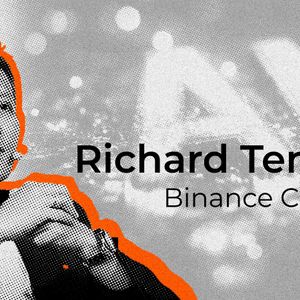Hold onto your hats, crypto enthusiasts! The ever-vocal Bitcoin critic, economist Peter Schiff, is back in the ring, and this time he’s swinging hard at the very core of Bitcoin’s popular narrative: its identity as ‘digital gold’. According to a recent CryptoPotato report, Schiff has doubled down on his skepticism, branding the ‘digital gold’ marketing of Bitcoin as nothing short of a ‘fraud’. But is there any merit to his claims, or is this just another round of FUD (Fear, Uncertainty, and Doubt) from a known Bitcoin bear? Let’s dive deep into Schiff’s arguments and unpack what this means for the future of Bitcoin and your crypto portfolio. Is Bitcoin Really ‘Digital Gold’ or Just a High-Risk Asset? Schiff’s central argument, voiced on a recent X podcast, is that while Bitcoin is touted as the digital equivalent of gold, its trading behavior tells a completely different story. He asserts that true precious metals, like gold, act as safe havens, especially during economic turmoil. However, Bitcoin, in his view, behaves more like a highly speculative tech stock – volatile, unpredictable, and far from a store of value. Here’s a breakdown of Schiff’s key points: ‘Digital Gold’ Narrative is Misleading: Schiff believes that marketing Bitcoin as ‘digital gold’ is a deceptive tactic. He argues that gold has intrinsic value and a long history as a safe haven asset, while Bitcoin is purely speculative. Lacks Use Case Compared to Tech Stocks: He contrasts Bitcoin with tech stocks, which, despite their risks, represent ownership in companies with potential future earnings and real-world business growth. Schiff questions Bitcoin’s fundamental utility and real-world application beyond speculation. Extreme Volatility: Schiff points out Bitcoin’s extreme price swings, arguing that true safe-haven assets should exhibit more stability, especially during economic downturns. He sees Bitcoin’s volatility as a hallmark of a high-risk asset, not a store of value. No Solid Backing: Unlike traditional assets or even tech stocks backed by company performance, Schiff argues that Bitcoin lacks tangible backing, making its value purely dependent on market sentiment and speculation. To illustrate his point, Schiff highlights the recent market trends. While gold often sees increased demand during periods of economic uncertainty, Bitcoin tends to fluctuate wildly, often mirroring the movements of risky assets like tech stocks. This, according to Schiff, directly contradicts the ‘digital gold’ thesis. MicroStrategy’s Bitcoin Bet: A Ticking Time Bomb? Schiff didn’t stop at just criticizing Bitcoin’s core narrative. He also cast a dark shadow over MicroStrategy, now known as Strategy, the publicly traded company infamous for its massive Bitcoin holdings. With a staggering 531,644 BTC in its treasury, MicroStrategy is arguably the most prominent corporate believer in Bitcoin. However, Schiff predicts a grim future for the company, forecasting eventual bankruptcy due to its aggressive Bitcoin strategy. Why such a dire prediction? Overexposure to a Volatile Asset: Schiff views MicroStrategy’s massive Bitcoin investment as reckless overexposure to an extremely volatile asset. He believes that any significant downturn in the Bitcoin market could severely impact the company’s balance sheet. Leveraged Bet: MicroStrategy has often used debt financing to acquire more Bitcoin, amplifying both potential gains and potential losses. Schiff sees this leveraged bet as incredibly risky, especially if Bitcoin’s price declines sharply. Business Model Reliance on Bitcoin: MicroStrategy’s stock price is now heavily correlated with Bitcoin’s price. Schiff argues that this dependence makes the company vulnerable and its stock a proxy for a highly speculative cryptocurrency rather than a stable business investment. While MicroStrategy’s CEO, Michael Saylor, remains a staunch Bitcoin advocate, Schiff’s warning raises serious questions about the risks associated with such concentrated exposure to a volatile asset, especially for publicly traded companies and their shareholders. Decoding ‘Digital Gold’: What Does It Actually Mean? The term ‘ digital gold ‘ has become synonymous with Bitcoin within the cryptocurrency community. But what does it really mean, and why is this narrative so powerful? Proponents of the ‘digital gold’ narrative argue that Bitcoin shares several key characteristics with gold: Scarcity: Just like gold is a finite resource, Bitcoin has a capped supply of 21 million coins, making it inherently scarce. This scarcity is often touted as a key driver of long-term value. Decentralization: Both gold and Bitcoin are seen as decentralized assets, outside the direct control of governments and central banks. This decentralization appeals to those seeking alternatives to traditional financial systems. Store of Value Potential: Historically, gold has been used as a store of value, preserving wealth over long periods. Bitcoin proponents believe it can serve a similar purpose in the digital age, acting as a hedge against inflation and economic instability. Portability and Divisibility (Digital Advantage): Unlike physical gold, Bitcoin is easily portable across borders and highly divisible, making it practical for digital transactions and storage in the modern world. However, Schiff and other critics argue that these similarities are superficial and that Bitcoin lacks the established history, stability, and real-world utility of gold to truly earn the ‘digital gold’ title. They emphasize the speculative nature of Bitcoin’s price movements and its vulnerability to market sentiment and technological disruptions. Investment Risk: Navigating the Volatility of Bitcoin Peter Schiff’s critique ultimately boils down to the concept of investment risk . He firmly believes that Bitcoin is a high-risk asset, unsuitable for those seeking a safe haven or a reliable store of value. Understanding and managing investment risk is crucial for anyone venturing into the cryptocurrency market, particularly with Bitcoin. Here are key considerations regarding investment risk in Bitcoin: Price Volatility: Bitcoin’s price is notoriously volatile, experiencing dramatic swings in short periods. This volatility can lead to significant gains but also substantial losses. Market Sentiment Dependence: Bitcoin’s price is heavily influenced by market sentiment, news cycles, and social media trends. This makes it susceptible to rapid shifts in investor confidence. Regulatory Uncertainty: The regulatory landscape for cryptocurrencies is still evolving globally. Changes in regulations can significantly impact Bitcoin’s price and adoption. Technological Risks: While the Bitcoin network is generally secure, technological risks like smart contract vulnerabilities in related platforms or potential quantum computing threats remain concerns. Lack of Intrinsic Value (Argument): Critics like Schiff argue that Bitcoin lacks intrinsic value, making its price purely speculative and dependent on continued demand. For investors considering Bitcoin, it’s essential to acknowledge these risks and approach it as a potentially high-reward, but also high-risk asset class. Diversification, risk management strategies, and thorough research are crucial for navigating the volatile world of Bitcoin and cryptocurrencies. Actionable Insights: Making Informed Decisions About Bitcoin So, what are the actionable takeaways from Peter Schiff’s critique and the ongoing debate about Bitcoin’s identity? Whether you agree with Schiff or remain a Bitcoin believer, here are some insights to guide your crypto journey: Do Your Own Research (DYOR): Don’t blindly follow narratives, whether it’s ‘digital gold’ or ‘fraud’. Conduct thorough research, understand the technology, the market dynamics, and the risks involved before investing in Bitcoin or any cryptocurrency. Risk Assessment is Key: Honestly assess your risk tolerance. Bitcoin is not for the faint of heart. If you are risk-averse, consider allocating only a small portion of your portfolio to cryptocurrencies, or perhaps avoid them altogether. Diversify Your Portfolio: Don’t put all your eggs in one basket, especially a volatile one like Bitcoin. Diversify your investments across different asset classes to mitigate risk. Understand Volatility: Be prepared for significant price swings. Don’t invest money you can’t afford to lose. Understand that Bitcoin investments can be highly speculative. Stay Informed: The cryptocurrency space is rapidly evolving. Stay updated on market trends, regulatory developments, and technological advancements to make informed decisions. Conclusion: Navigating the Bitcoin Narrative Peter Schiff’s persistent criticism of Bitcoin, particularly his ‘digital gold fraud’ claim, serves as a crucial reminder to approach the cryptocurrency market with a healthy dose of skepticism and critical thinking. While the ‘digital gold’ narrative has undoubtedly contributed to Bitcoin’s popularity, it’s essential to understand the nuances, risks, and differing perspectives. Whether Bitcoin ultimately proves to be ‘digital gold’ or simply a high-risk asset remains to be seen. However, informed investors who understand the complexities and volatility of Bitcoin are better positioned to navigate this exciting yet unpredictable asset class. The debate continues, and only time will truly tell the final chapter in Bitcoin’s story. To learn more about the latest cryptocurrency market trends, explore our article on key developments shaping Bitcoin price action.
















